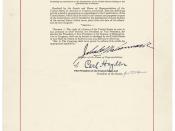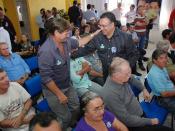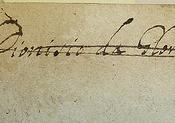1. Facts: A special grand jury was convened in Illinois in February 1971, to investigate possible violations of federal criminal statutes related to gambling. Approximately 20 people were subpoenaed, including respondent Dionisio, seeking to obtain from them voice exemplars for comparison with the recorded conversations that had been received in evidence. Dionisio and others refused to supply the voice exemplars, stating that these disclosures would violate their rights under the Fourth and Fifth Amendments.
2. Procedural History: The government filed separate petitions in the United States District Court to compel Dionisio and the others to comply. Following a hearing, the District Judge rejected the witnesses' constitutional arguments and ordered them to comply with the grand jury's request. Dionisio still refused and was committed to custody until he obeyed the court order, or until the expiration of 18 months. The Court of Appeals for the Seventh Circuit reversed the verdict due to a violation of Fourth Amendment rights.
3. Issue: According to the Fourth Amendment, is there a requirement of a preliminary showing of reasonableness before numerous grand jury witnesses' can be compelled to furnish a voice exemplar?
4. Holding: The compelled production of the voice exemplars would not violate the Fifth Amendment privilege against compulsory self-incrimination. Respondent's Fourth Amendment claim is also invalid because a subpoena to compel a person to appear before a grand jury doesn't constitute a "seizure" within the meaning of the Fourth Amendment, nor did it matter that many witnesses' were asked to comply. The Court of Appeals for the Seventh Circuit erred in requiring a preliminary showing of reasonableness before respondent could be compelled to furnish the exemplar.
5.Judgement: Reversed and remanded.
6. Reasoning: There is no valid Fifth Amendment claim because there was no order to produce private books and papers, and...


